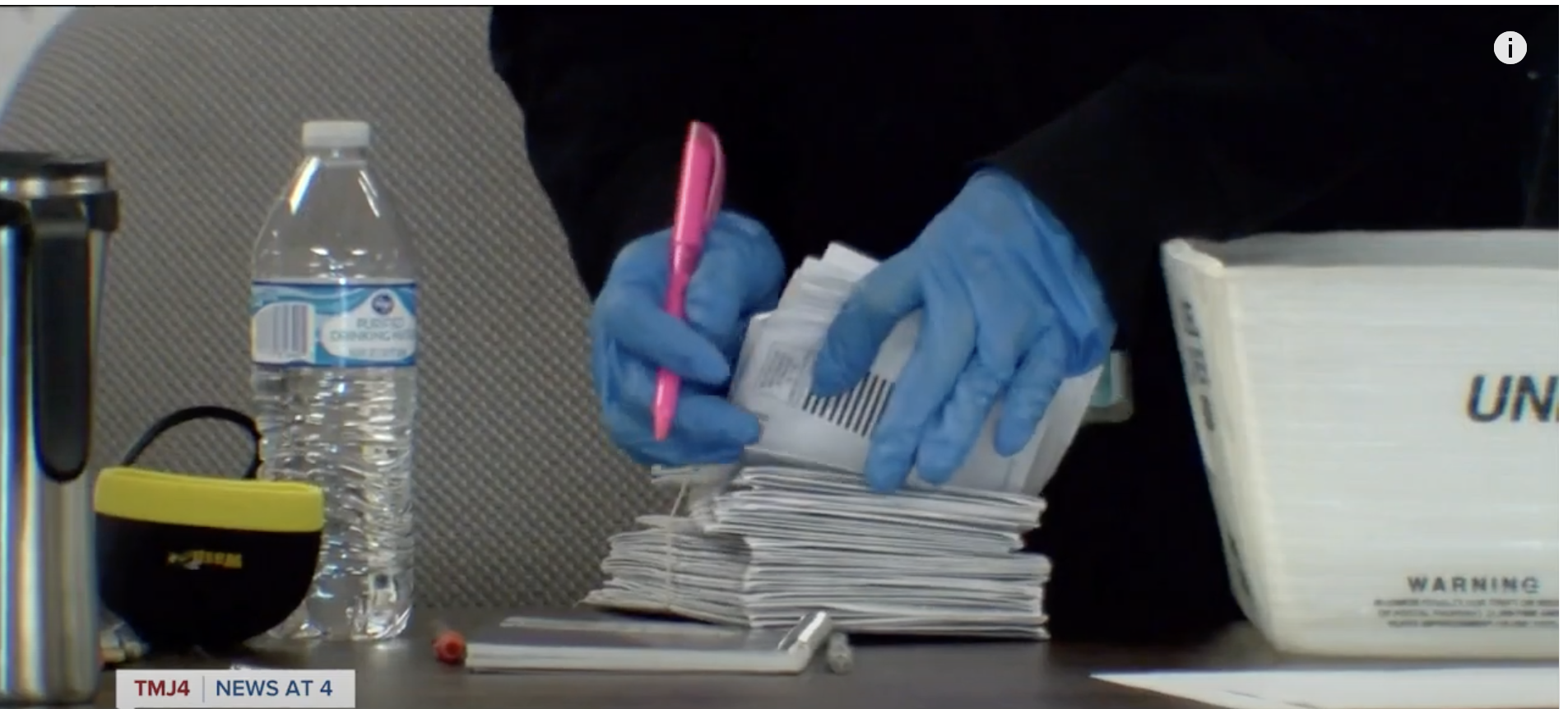Obama judge denies transfer of Fulton County case to federal court for fair trial of Jeff Clark.
A federal judge has rejected former Assistant Attorney General Jeff Clark’s attempt to move the Fulton County, Georgia, criminal indictment to federal court. This decision, made by Obama appointee Steve Jones, is a shocking disregard for the executive branch of government. If not overturned on appeal, it will undermine the confidentiality and openness necessary for the executive branch to function effectively.
Clark sought to transfer the extensive grand jury indictment, obtained by Fulton County prosecutor Fani Willis against him and 18 co-defendants, including the former president, to federal court. He relied on § 1442(a)(1) of the United States code, which allows a “criminal prosecution that is commenced in a State court” against a federal officer to be removed to federal court if it is “for or relating to any act under color of such office…”
Judge Jones dismissed Clark’s attempt, ruling that he failed to provide sufficient evidence to establish a causal connection between his drafting of a letter on Dec. 28, 2020, and his role as the assistant attorney general for the Civil Division of the DOJ.
The letter, presented by Clark to his superiors at the DOJ, mentioned an investigation into irregularities in the 2020 presidential election and expressed concerns about the outcome in multiple states, including Georgia. However, both Jeff Rosen and Richard Donoghue, then-acting attorney general and deputy attorney general respectively, declined to sign the letter, disagreeing with Clark’s assessment and the Justice Department’s involvement in the election dispute. President Trump later met with Rosen, Donoghue, Clark, and other senior administration lawyers to discuss the letter, ultimately deciding against sending it.
Despite drafting the letter in his DOJ office, using DOJ equipment, and discussing it with high-ranking officials, Judge Jones concluded that the charges against Clark were not causally connected to his role as assistant attorney general. He argued that there was no evidence that the President directed Clark to work on election-related matters or write the letter to Georgia officials.
In essence, the federal court denied Clark the opportunity to present his immunity and other defenses without revealing privileged communications with the President.
Judge Jones also rejected Clark’s removal based on the argument that sending the draft letter exceeded his authority as well as the DOJ’s authority. This reasoning could potentially subject all federal employees, including Senate-confirmed officials, to prosecution in state courts for recommending actions that others believe are beyond their authority. Such a standard would disrupt the necessary frank deliberations within the executive branch. This holding must not be allowed to stand if the supremacy clause is to have any meaning.
The 11th Circuit will soon decide these issues, with Mark Meadows, the former chief of staff for Trump, leading the appeal. Meadows also appealed Judge Jones’ decision to deny the removal of the Fulton County criminal case. While there are factual differences between Meadows and Clark’s cases due to their different roles in the Trump administration, Meadows’ brief exposes a critical flaw in Judge Jones’ analysis.
In both cases, Judge Jones questioned whether the charges were causally connected to their federal office. However, Meadows argues that Congress amended § 1442(a) in 2011, broadening federal officer removal to include actions “relating to” or “associated with” acts under color of federal office. Given that President Trump spent hours discussing Clark’s letter with top DOJ officials, it is nonsensical to claim that the drafting of the letter was not related to Clark’s federal office. This entire situation, orchestrated by a county prosecutor in a deeply partisan county, highlights the importance of removal jurisdiction for federal officials.
rnrn
What evidence did Judge Jones find lacking in Clark’s argument for transferring the indictment to federal court?
Is case in federal court and have it heard by a federal judge. This decision has significant implications for the relationship between the executive and judicial branches of government.
The indictment against Jeff Clark and his co-defendants, including the former president, is a serious matter that should be handled with care and impartiality. Moving the case to federal court would have provided a fair and neutral forum for its adjudication. However, Judge Jones’ ruling effectively denies Clark this opportunity.
Clark sought to transfer the indictment to federal court based on § 1442(a)(1) of the United States code, which allows for the removal of a criminal prosecution commenced in a state court against a federal officer if it relates to acts committed in their official capacity. He argued that his drafting of a letter at the Department of Justice (DOJ) and his discussions with high-ranking officials were acts under the color of his office.
However, Judge Jones dismissed Clark’s argument, stating that he failed to provide sufficient evidence to establish a causal connection between his actions and his role as assistant attorney general. Despite Clark drafting the letter in his DOJ office and discussing it with senior officials, the judge concluded that there was no evidence that the President directed Clark to work on election-related matters or write the letter.
This ruling is concerning because it undermines the confidentiality and openness necessary for the executive branch to function effectively. If government officials are deterred from discussing important matters and expressing their concerns out of fear of legal repercussions, it hampers the decision-making process and limits the ability of the executive branch to carry out its duties.
Furthermore, this decision by an Obama appointee raises questions about political bias and the independence of the judiciary. It is important for judges to uphold the principles of fairness and impartiality, regardless of their political affiliations. The fact that this ruling goes against the executive branch, which is headed by a different political party, raises doubts about the judge’s motivations.
This case is far from over, as Clark can appeal the decision and seek a review by a higher court. It is crucial that the appellate courts carefully consider the implications of this ruling and the potential impact it could have on the relationship between the executive and judicial branches.
In conclusion, Judge Jones’ decision to reject Jeff Clark’s attempt to move the criminal indictment to federal court is a disappointing blow to the executive branch and its ability to function effectively. It raises concerns about the impartiality of the judiciary and the potential for political bias. It is essential that this decision be reviewed and potentially overturned on appeal to ensure fairness and preserve the balance of power between the branches of government.
" Conservative News Daily does not always share or support the views and opinions expressed here; they are just those of the writer."





